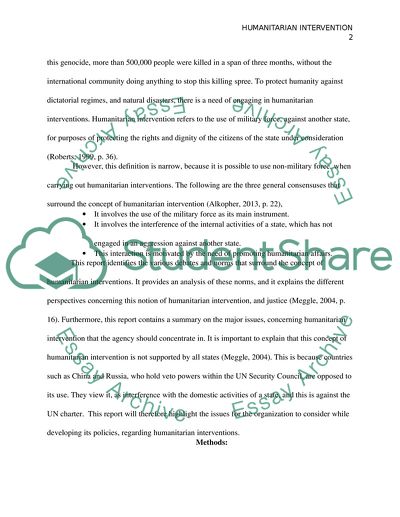Cite this document
(The Norms and Facts Surroundes Humanitarian Intervention Application Term Paper, n.d.)
The Norms and Facts Surroundes Humanitarian Intervention Application Term Paper. Retrieved from https://studentshare.org/politics/1667278-write-a-report-for-a-fictional-human-rights-ngo-on-the-issues-of-justice-it-should-consider-when-forming-its-policy-stance-on-international-norms-around-humanitarian-intervention1600-word-count
The Norms and Facts Surroundes Humanitarian Intervention Application Term Paper. Retrieved from https://studentshare.org/politics/1667278-write-a-report-for-a-fictional-human-rights-ngo-on-the-issues-of-justice-it-should-consider-when-forming-its-policy-stance-on-international-norms-around-humanitarian-intervention1600-word-count
(The Norms and Facts Surroundes Humanitarian Intervention Application Term Paper)
The Norms and Facts Surroundes Humanitarian Intervention Application Term Paper. https://studentshare.org/politics/1667278-write-a-report-for-a-fictional-human-rights-ngo-on-the-issues-of-justice-it-should-consider-when-forming-its-policy-stance-on-international-norms-around-humanitarian-intervention1600-word-count.
The Norms and Facts Surroundes Humanitarian Intervention Application Term Paper. https://studentshare.org/politics/1667278-write-a-report-for-a-fictional-human-rights-ngo-on-the-issues-of-justice-it-should-consider-when-forming-its-policy-stance-on-international-norms-around-humanitarian-intervention1600-word-count.
“The Norms and Facts Surroundes Humanitarian Intervention Application Term Paper”, n.d. https://studentshare.org/politics/1667278-write-a-report-for-a-fictional-human-rights-ngo-on-the-issues-of-justice-it-should-consider-when-forming-its-policy-stance-on-international-norms-around-humanitarian-intervention1600-word-count.


